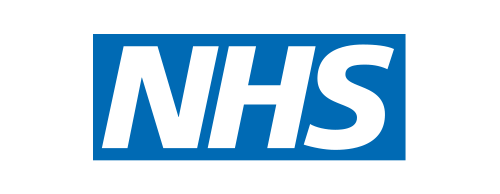Radiotherapy FAQs
Yes. Your oncologist will always weigh up the risks and benefits of treatment with you before recommending a course of radiotherapy.
The treatment will be explained in detail at your outpatient appointment. You will usually be given some written information. If you agree to proceed you will be asked to sign a form giving your consent and be offered a copy for your records.
There will be a further opportunity to ask questions when you attend for your radiotherapy planning scan.
You may have a single treatment or a course of treatments once daily, Monday to Friday, lasting one to three weeks.
Your oncologist will decide how many treatments you will have depending on your individual circumstances.
A team of highly trained radiographers will deliver the daily treatments and monitor your progress.
You may not be treated by the same staff every day. Most departments have a mixture of male and female radiographers. They are all ready to help answer any questions you may have.
Specialist oncology nurses are also on hand to offer advice.
If problems arise during treatment an appointment will be made with your nurse specialist or oncologist.
No. External beam linac radiotherapy does not make you radioactive. You can safely mix with other people, including children, at any time during a course of treatment.
Radiotherapy is potentially harmful to a developing baby, particularly in the first three months of pregnancy. You should not fall pregnant shortly before or during radiotherapy. Please let your radiographer or doctor know if you think you might be pregnant.
If you have a pacemaker please let your oncologist know. A pacemaker check will be required before treatment but radiotherapy can usually still be safely delivered.
A photograph of your face will be taken to aid patient identification within the treatment centre.
You may have a photograph of the treatment area taken to aid accurate delivery of the treatment.
You will always be asked for your permission before any photographs are taken.
Tiredness (also referred to as fatigue) is common during radiotherapy. You may need to reduce the length of your working day but many patients are able to work throughout their treatment.
Yes, you can continue to take all prescription medicines safely during radiotherapy.
It’s important to tell your oncologist about any vitamin and mineral supplements that are bought over the counter. There is some uncertainty about how safe it is to take vitamins, particularly high-dose antioxidants (including vitamins A, C and E, Co-enzyme Q10 and selenium) during radiotherapy, so these are best avoided.
All patients get some side effects during radiotherapy, though most of them are mild and completely reversible.
Short term side effects are common, occur during or shortly after treatment, and are temporary (because the normal tissues heal after radiation exposure).
Tiredness and skin redness are the commonest effects. These are usually short-lived.
Long term (‘late’) side effects are rare but can appear months or years after treatment. For most patients they are not usually severe.
The type of side effects experienced depends on the area of the body being treated.
Read more information about breast radiotherapy side effects.
Wash the skin in the treated area with a mild, unperfumed soap.
Use lukewarm water when washing, then pat dry with a soft towel.
Moisturise with a simple unfragranced moisturiser or aloe vera gel (instead of your regular gels and creams).
If you want to use anything else on the skin in the treatment area, discuss this with your radiographer first.
Avoid exposing the area to extremes of temperature (such as heat pads, saunas or ice packs) during treatment.
Avoid using deodorant or perfume in the treated area.
Make sure the treated skin is covered when out in the sun.
Swimming during a course of radiotherapy is not known to be harmful, though some patients find the chemicals in the water can irritate the skin.
You will receive a follow-up telephone call from the radiographer staff a couple of weeks after the treatment is complete.
Patients are seen in clinic by the oncologist about 4-6 weeks after the last radiotherapy session.
This provides an opportunity to make sure any side effects have settled, review any new symptoms and ask any questions you might have.
Patient Information Video
Quick Links
Useful links
TESTIMONIALS
See more reviews at Doctify and I want Great CareEverything was explained to me thoroughly, using language and statistics I could understand. He and his team are simply fantastic and I couldn’t have felt safer in their hands.
His approach immediately puts you at ease. He is a great support to me and I trust him implicitly.
Dr Burcombe is very knowledgeable, efficient, reassuring and approachable. I am very happy indeed with the level of care I have received from him and would have no hesitation in recommending him.
I am so grateful for my excellent medical care and all your support.
A true professional, but mixed with a very human side in dealing with people.
I trust him completely and am now 8 years cancer free. Thank you.
He listened to me and explained every aspect of my treatment/condition in language I understood!
He has a sympathetic ear, and can be relied upon to go the extra mile in exploring potential treatment options.
I can't recommend Dr Burcombe enough. A truly empathetic and considerate professional.




